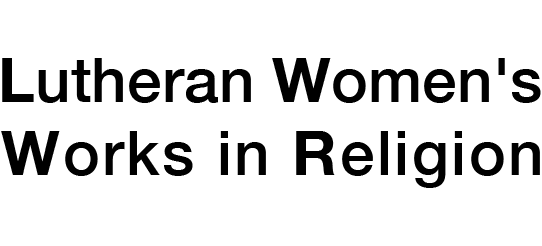Category: Theology
Theology filtered by type: Books
The first of its kind, this volume is a collaborative presentation of feminist, womanist, mujerista, and queer Lutheran theologies. It is both systematic and constructive, for it addresses classical loci in theology and is relevant for preaching, teaching, and ethical considerations, both personal and institutional. The contributors from diverse experiences and contexts seek ongoing reformation of the church and the world.
Love Without Limits is an award-winning memoir and practical how-to-guide for love across division and difference in these troubled times. Through poignant personal memoir, stunning authenticity, creative readings of scripture, inspiring true stories of boundary-busting friendships, and surprising shout-outs to love’s unsung heroes, Bussie challenges readers to widen love’s wingspan so far that it excludes no one. Publishers Weekly praised this book as a “must-read for all Christians interested in inclusivity in their communities.”
I explore the roles of stewards, prophets, keepers of the word in the ancient Mediterranean cultures in order to demonstrate how early church leaders in the first and second centuries drew on these roles to subvert dominant power structures, justify innovation, create and preserve the emerging traditions of and about Jesus. This study draws on anthropological insights to critically assess Greco-Roman and early Christian sources.
This exciting volume gathers theologians and historians who have thought through critical and constructive issues regarding the meaning of the cross for today‘s Christians. Following an expert introduction to the issues and options by editor Marit Trelstad, each author addresses the Christian symbol of the cross in the context of current theological, sociological, political, or environmental issues.
Equally committed to the insights of Luther‘s theology of the cross and feminist theology, I seek in this book common ground on issues of suffering, abuse, atonement, reform, ethics, and the import of Jesus, all of which culminates in a constructive proposal for a feminist theology of the cross.
The first of its kind, this book is a systematic representation of Lutheran feminist, womanist, and mujerista theologies. The book focuses on central themes that Luther addressed and that are representative of Lutheranism today, including justification by grace through faith and Luther’s theology of the cross.
In No Greater Jewel Luther’s teaching of baptism is unfolded in light of specific issues arising around Lutheran practices and understanding of baptism today. Includes questions for discussion.
A faculty book exploring different ways spirituality is thought and modeled in seminary education – editing, and two articles.
Studies the ways Christians have read six biblical narratives about sexual violence, using biblical commentary, homilies, and devotional writings as a window into the history of the church’s attitudes about rape. Schroeder analyzes the patterns of Christian interpretation, from the early church through the Reformation, and shows that traditions of interpretation are often more disturbing and horrifying than the texts themselves.
This book explores a story that Martin Luther told to encourage people in despair. In the story a woman resists the devil‘s temptation to despair with the words “I am a Christian.” Part one of the book examines what that confession meant to Luther and why it was important to him. Part two investigates the woman‘s identity. Part three applies the story to modern forms of despair.

